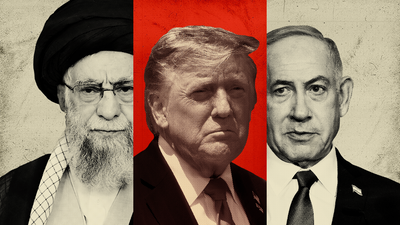Despite a ceasefire declared by US President Donald Trump, tensions in the Gulf continue to rise following a missile attack by Iran on a US airbase in Qatar. The incident has drawn sharp condemnation from Doha, a diplomatic apology from Tehran, and growing concern over whether the truce can hold.
Trump Declares Ceasefire, Accuses Israel of Immediate Violation
Late Monday night, US President Donald Trump announced a ceasefire between Israel and Iran following a string of tit-for-tat military strikes. While positioning himself as the broker of calm, Trump expressed frustration with Israel, accusing it of violating the truce moments after it was agreed.
“I’m not happy with Israel… They violated the ceasefire right after I made the deal,” Trump said. “They grabbed the biggest load of bombs you’ve ever seen. I’m really unhappy that Israel is attacking for one rocket that was a mistake that didn’t land.”
In a direct message, he warned:
“ISRAEL. DO NOT DROP THOSE BOMBS. BRING YOUR PILOTS HOME, NOW!”
Trump also clarified that the United States is not seeking regime change in Iran, warning that such action would only create more chaos. He reaffirmed that Iran will not be allowed to develop nuclear weapons, and noted that Russian President Vladimir Putin had called him, offering to assist in easing tensions.
Iran Offers Regret, But Qatar Stands Firm
In a phone call on Tuesday, Iranian President Masoud Pezeshkian expressed regret to Qatar’s Emir Sheikh Tamim bin Hamad Al Thani. According to the Diwan (Emir’s office), Pezeshkian clarified that neither Qatar nor its people were the intended target of the missile strike and that it did not pose a threat to the Gulf state.
He stressed that Qatar remains a “neighbouring, Muslim, and sisterly state,” and expressed hope that bilateral ties would continue based on mutual respect and the principles of good neighbourliness.
However, the Emir strongly reiterated his condemnation of the attack, calling it a violation of Qatar’s sovereignty and inconsistent with the close relationship historically shared between the two nations. He emphasized that Qatar has always advocated dialogue and de-escalation — especially with Iran.
Qatari PM: Missile Strike Has Left a Scar on Relations
In a press briefing, Qatar’s Prime Minister Sheikh Mohammed bin Abdulrahman bin Jassim Al Thani acknowledged the impact of the missile attack on bilateral ties with Iran.
“We are not adopting a policy that is escalatory… but this will definitely leave a scar on the relationship,” he said. The prime minister also urged regional players to avoid actions that undermine neighborhood ties and called for lessons to be learned from the region’s growing instability.
Earlier the same day, Qatar submitted an official complaint to UN Secretary-General António Guterres and the UN Security Council. The Foreign Ministry called Iran’s strike an “extremely dangerous escalation” and a “direct threat to regional peace and security.”
Iran Reaffirms Commitment to Its Nuclear Programme
As tensions escalate, Iran’s Foreign Minister Abbas Araghchi reaffirmed that Iran will not abandon its nuclear programme. He said the Israeli assault had only deepened the nation’s resolve to hold on to its nuclear capabilities.
“We have made significant sacrifices to develop this technology,” Araghchi told Al-Araby Al-Jadeed. “Our scientists gave their lives for it. Our people endured immense hardships, and we even faced war over this issue. It is absolutely clear that no one in Iran is willing to give it up.”
Conclusion: Ceasefire in Name, Crisis in Motion
What was intended to be a de-escalatory breakthrough has quickly become a test of credibility for all sides involved. The Iranian missile strike on Qatari soil has complicated regional diplomacy and challenged the effectiveness of the US-brokered ceasefire.
While Iran has extended verbal regret and Qatar has urged calm, the political and strategic consequences of the attack remain unresolved. With both Iran and Israel accusing each other of violating the truce, and the US caught between conflicting allies, the coming days will determine whether this ceasefire holds — or fades into yet another missed opportunity for peace.


